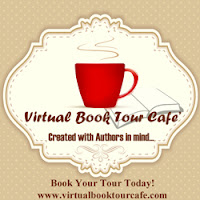2. I spent almost four months doing world creation and developing the characters before I even made an outline. I wanted to know every detail of the world and people I would be writing about. Once the outline was done, I wrote 1,000-1,500 words a day and finished the first draft in two months. Renegades wasn’t published until almost a year after that because I couldn’t stop editing.
3. I had originally named the protagonist Elena, but as I was doing my character development, I read the 50 Shades of Grey series, and one of the characters was named Elena, so I changed her name to Elora. Not only did I not like Elena’s character in 50 Shades of Grey, but since that series was so popular, I didn’t want any kind of association with it. In the end, I’m glad I went with Elora. It’s not a very common name, but still pronounceable, which was what I aimed for with all the character’s names.
4. Nigel is my least favorite character. I find him to be very needy, annoying, and immature. But I think his character is necessary for the book to unfold how I wanted it to. His skill set is obviously necessary, but for him to stick with Elora through everything, I felt like he had to be in love with her. His level of dedication had to be more than friendship.
5. I decided to forgo the traditional publishing route and self-publish Renegades mostly because I’m impatient. Querying agents and securing a publisher can take years, and I wanted my book available as soon as possible (and my mom wouldn’t quit asking me when she could read it). The actual writing, editing, and publishing part of self-publishing wasn’t as hard and time-consuming as I thought it would be. Marketing, on the other hand, takes up more time than expected.
Introducing...
RENEGADES
| Amazon | BN | Kobo Smashwords |
Elora Pertin spent her life trying to please her father, an esteemed General for the Empire.
When he convinced her to leave her quiet life as a scientist to advance a secret project for the Emperor, she had no idea what she was getting into. The seemingly innocent projects she engineered were actually being used to develop a genocidal weapon. After uncovering the Emperor’s plot, Elora had no choice but to act.
Elora finds herself fighting for her life against the Empire she once served, abandoning everything with only a handful of friends and an unlikely ally—the Emperor’s deadliest assassin. Will he prove himself true as her protector, a loyal servant of the Empire, or a romantic distraction? With the law and assassins searching the star system for them, Elora and her team are determined to accomplish their mission . . . or die trying.
| Sara Atherton Mason |
She attended Wheaton College in Norton, Massachusetts, graduating with highest honors in Chemistry. She then graduated from the Florida State University College of Law with high honors.
She lives in the Florida with her toy poodle, Melvin, and clerks for a United States District Court Judge. She enjoys coffee, wine, sports, and science fiction television shows.





















